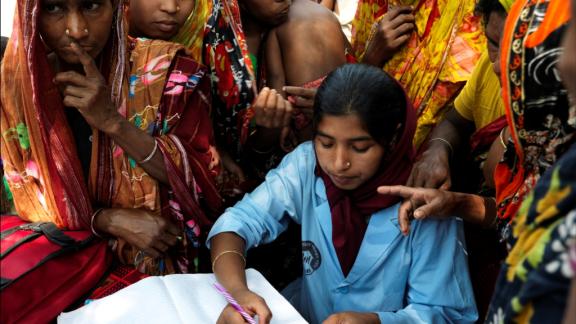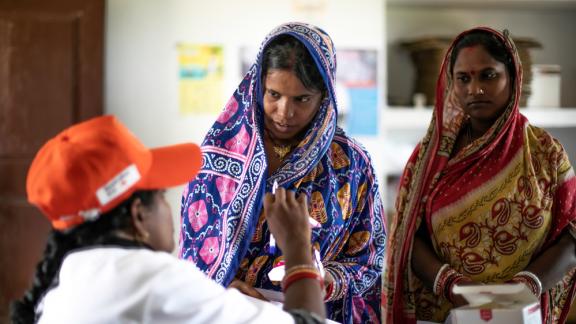Rashida, a young 23-year-old woman, hails from a remote village in Barisal, Bangladesh. Barisal and its neighbouring areas are near the sea shore where one has to live with the constantly changing shoreline and increasing water levels. The search for high ground drives the villagers further inland increasing their remoteness and isolation. Every year Rashida’s village is cut-off for months during the monsoons, making it even more difficult for her access healthcare and other services.
As a mother to two young children, she doesn’t want another pregnancy. “Between my household chores and taking care of these two feisty children, I have very little time left for anything else”, says Rashida. While she needs to use contraceptives, she isn’t able to take time out for a long trek to the nearest health centre.
Recognising the needs of women of reproductive age like Rashida, Family Planning Association of Bangladesh (FPAB) conducts outreach camps in remote and hard to reach areas, where sexual and reproductive healthcare services such as antenatal checkups, contraceptive provision and other related services are offered. Such camps most often than not mean the difference between planned pregnancies as opposed to unintended ones.
At these camps, the Reproductive Health Promoter (RHP) who is the community health worker of FPAB, provides information and counselling on contraception and birth spacing. The RHP is supported by a paramedic and a medical officer for service delivery. It was in one such camp that Rashida opted for an injectable contraceptive.
“I finally have the freedom and means to choose if I want another child or not”, says Rashida with a big smile.
when
country
France









